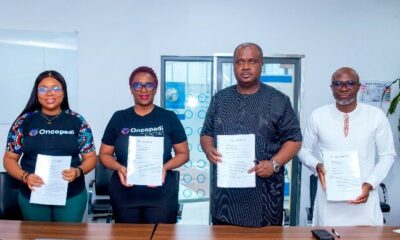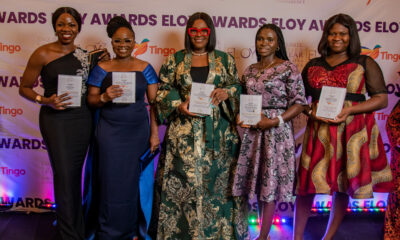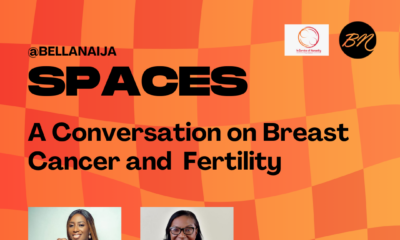Inspired
Dr Omolola Salako is the Cancer Care Champion Building a Formidable Ecosystem to Democratise Access & Support Patients
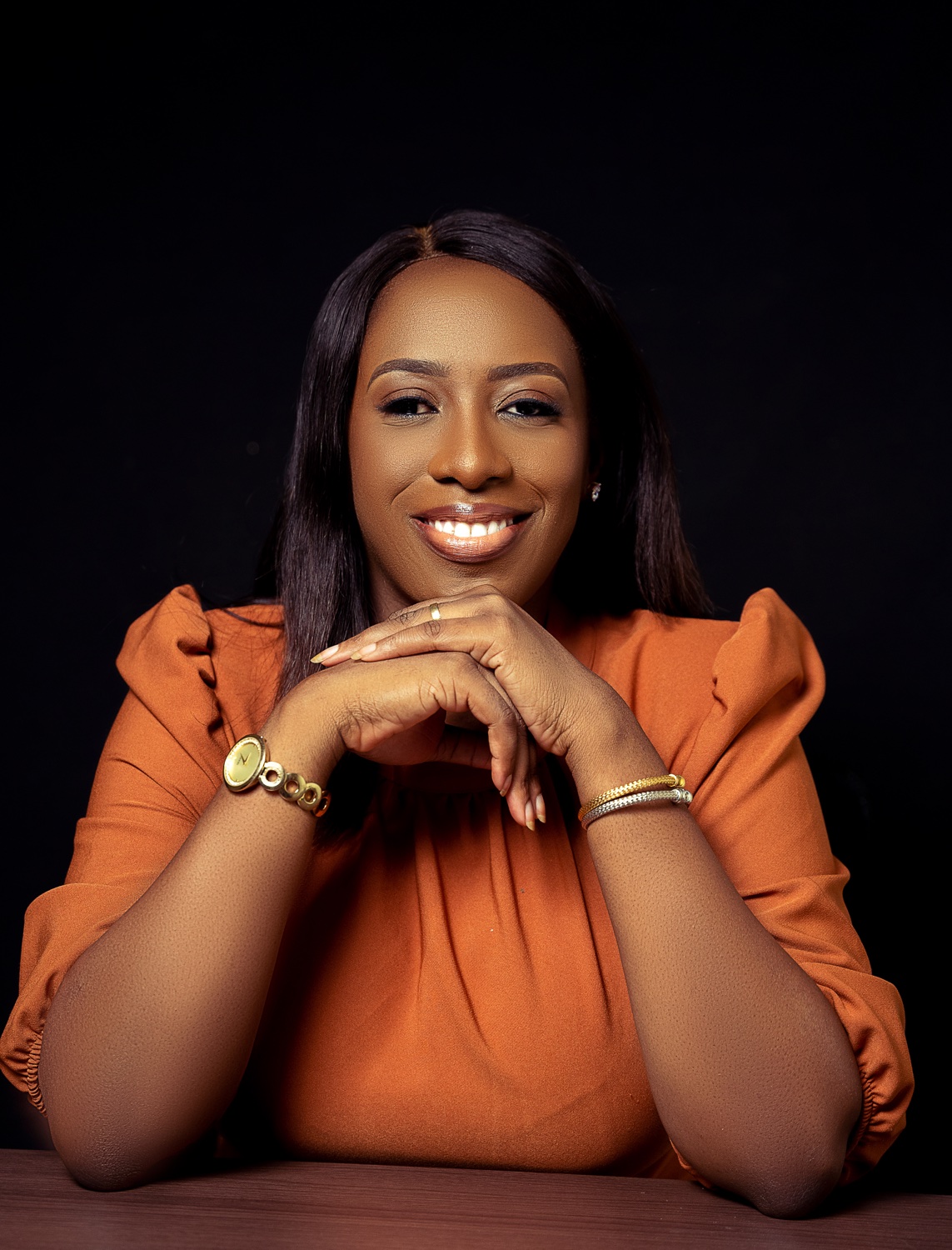
Almost two decades ago, Dr Omolola Salako‘s world came to a stand still: her younger sister had just been diagnosed with advanced kidney cancer. It was a difficult time for Omolola and her family. She couldn’t believe that her and her sister’s bond would be cut short. It was unfathomable to her that she was now caregiver to her sister who was so full of life.
At the time, there were only 30 oncologists in Nigeria, and her sister couldn’t see any of them. Eventually, she was moved to the UK, where she got hospice care before she unfortunately passed on.
“That moment defined my mission, and that mission became the rhythm to my profession. I channelled the broken promises, pain, emotions and ashes of my caregiver’s experience into a purposeful career that serves the cancer community,” Omolola wrote on her website.
“Today, I’ve seen more than 5,000 cancer patients in my career…. I know many people, like me, have loved ones battling cancer and I want to be that oncologist that illuminates that dark time, that provides resources and support and even if the prognosis is bad, I want to make the journey a bit easier,” Omolola said while speaking to BellaNaija and Global Citizen for their IMPACTER series.
Omolola, in the last 16 years, has founded 3 organisations tackling the scourge that is cancer. She founded Sebeccly Cancer Care and Support Centre, a patient-led cancer advocacy organisation dedicated to reducing the cancer burden and improving the standard of care, 3 years after her sister passed.
In 2018, Omolola founded 2 more cancer care organisations – Oncopadi Technologies and Pearl Oncology.
Oncopadi
“At Oncopadi, we develop digital health solutions that enable cancer patients and their loved ones to access care and support. We also provide access to cancer prevention services for the general public. We’ve gone on to develop and launch several solutions to achieve this. Like the Oncopadi mobile app that allows patients to remotely report their side effects and get managed by the cancer care team online.
“We also have the Ark, which is a virtual group, positioned in hospitals, especially those that don’t have a complete team of cancer specialists. For example, we are in Olabisi Onabanjo University Teaching Hospital, and there, they have the surgeons, a pathologist and a radiologist, but do not have a clinical oncologist. So to complete and strengthen the cancer care team in that hospital, Oncopadi Ark brings in oncologists virtually on a steady basis to provide care for patients,” Omolola said.
Omolola wants to democratise and decentralise access to cancer care with Oncopadi. “You know people living with cancer need the right information. Oncopadi is a platform where patients can sign up for free, book an appointment, and speak to a cancer specialist. And the idea is, we do know that there are just 81 clinical oncologists spread across 19 states in Nigeria, so it’s important that we cover beyond the 19 states where clinical oncologists are. A lot of cancer patients are travelling around the country just to see cancer specialists. We have tech, we can eliminate that stress. That’s what Oncopadi is doing.”
Pearl Oncology Clinic
Pearl Oncology became an onsite clinic in 2021, and there “we treat cancer patients, we provide chemotherapy, consultation, surgery, ward admission and the necessary care a cancer patient needs,” Omolola said.
Providing Cancer Support at Sebeccly
Sebeccly does not just provide cancer care and support for patients, or people with suspicious case of cancer, the organisation is also a community of cancer survivors and their loved ones who also help new patients navigate this daunting phase of their lives.
What happens when someone walks into Sebeccly’s office?
“So let’s say a woman comes in with breast cancer or a suspicious case of breast cancer, like she’s found a lump in her breast. And she’s not sure if it’s cancer. The first thing that happens is we sit with them and have a talk to understand what the issues are. We are aware of the clinical issues, but they’re also psychosocial. There’s fear of, is this cancer? If it is cancer, am I going to die? Can I transmit it to my relative? Where am I going to get the funds from? So there are a lot of issues that come with cancer that we first of all need to counsel and educate them on as well as show them resources that can help them through all those concerns. For us at Sebeccly, our goal is to clarify and demystify cancer, and its care,” said Omolola.
This individual is then led by a nurse (a patient navigator) to confirm a diagnosis or get treated if it’s an established case of cancer.
“If she’s having financial issues, we’ll show her resources where she can get support. These resources are very limited. For example, we run a free breast breast surgery program in General Hospital Lagos, so we provide free surgeries. And then there are quite a number of NGOs and philanthropists who support cancer patients.
“We also then introduce her to our support group where we have hundreds of women who are surviving breast cancer…. Our goal really is to ensure women get diagnosed and start treatment quickly. And then she continues to be in the support group, welcoming and supporting other newly diagnosed women.”
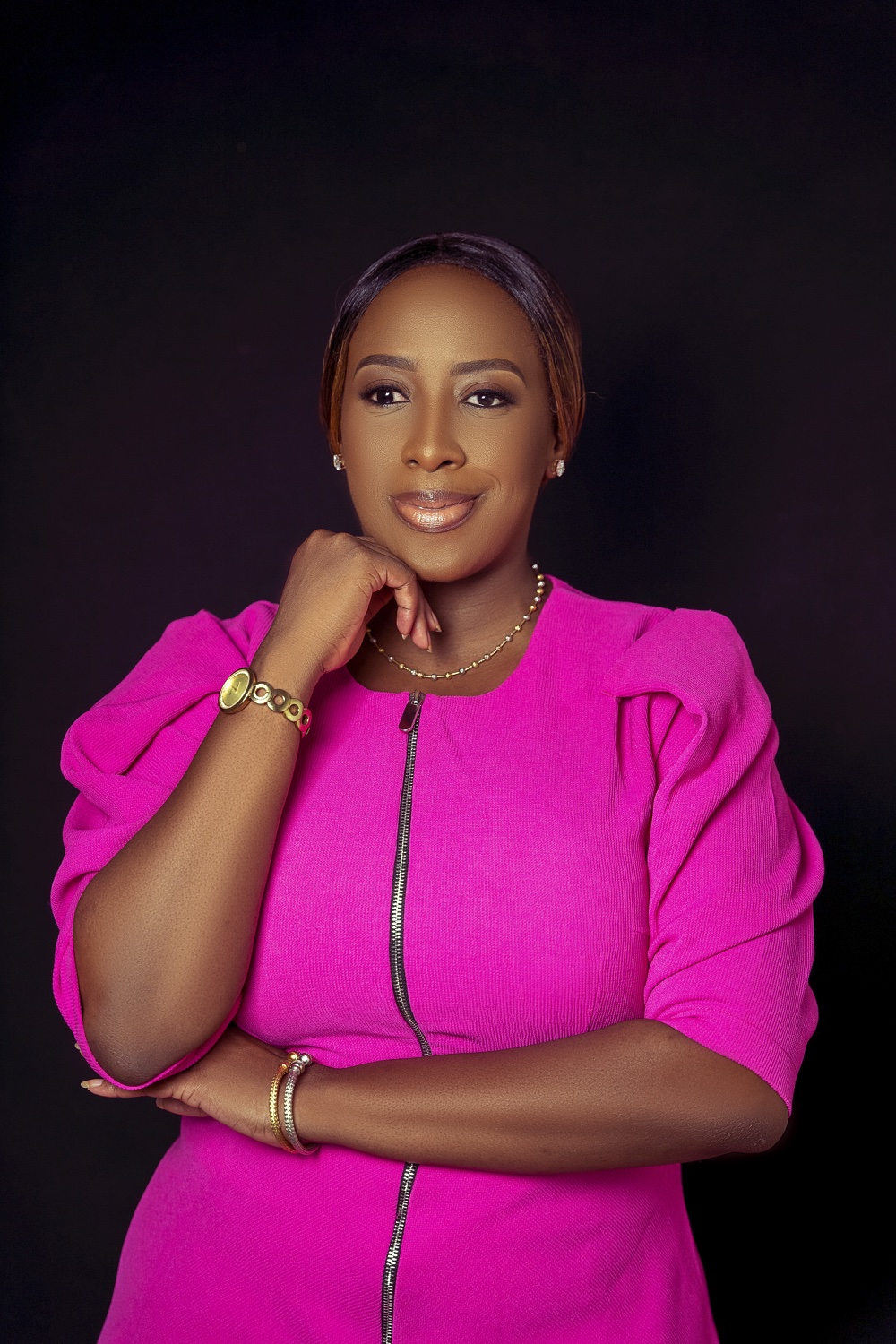
Helping Families Reduce the Financial Burden of Cancer Care
Cancer care is expensive. For breast cancer, you’ll need at least 3 million Naira and it can go as high as 20 million Naira, Omolola said. “A lot of patients cannot afford this. And even for those who can afford, it is such a huge amount required in a short period that it makes people bankrupt and broke.”
Sebeccly has a program called “Thank God It’s Friday” in partnership with Oncopadi and Pearl Oncology. Sebeccly raises 20% of a patients required funds, and Oncopadi and Pearl Oncology raise another 20% and the patient pays the remaining 60% for cancer care.
“It’s about the same amount they would pay in the hospital. But this time in a private setting where care is quick, they have one-on-one attention with cancer specialists and diagnosis and treatment is started within two weeks,” Omolola added.
“Thank God It’s Friday” is currently funded by Sebeccly’s “1k For Cancer” annual campaign which challenges the public to donate at least 1,000 Naira to help cancer patients pay bills. It was started by writer and poet Wana Udobang, and the goal at the time was to raise funds for a woman in her 30s who had just been diagnosed with cancer. She needed 4 million Naira and the campaign raised over 3 million Naira for her to get the needed care.
“The woman received her care. And she’s fine. She’s healthy. She’s doing well, she’s abroad now,” Omolola said, adding that the campaign has become one of the ways Sebeccly helps raise funds for cancer patients.
Sebeccly also has a community of corporate donors as well as philanthropists who support its work every year.
Internally, Sebeccly generates funds through its community clinic called “Time To Screen” which focuses on cancer prevention “because 40% of cancers are preventable,” according to Omolola.
“In that clinic, we provide screening to women, pap smears, VIA (visual inspection of the cervix with acetic acid), counselling, and we also assess cancer risk. The proceeds of that clinic is used to fund our TGIF program.”
Challenges Running Three Cancer Care Organisations in Nigeria
“All of this is for us to build a very solid cancer care ecosystem. A major challenge is the fact that we still have abysmal cancer statistics. More than 70% of cancer patients will eventually die from their disease because they present late. In 2020, 45,000 women died from cancer. The statistics are just abysmal. So that is discouraging. But it also serves as fuel to continue to do the work and quickly do the work so that we can reverse that figure,” Omolola said.
Another challenge is finding skilled manpower required for cancer care. Organisations can’t really control the medical exodus being experienced in Nigeria today and healthcare organisations are getting used to not having long term healthcare professionals.
Sebeccly has been fairly lucky in this regard, Omolola said. “We’re privileged to have a workforce that believes in the vision. When it’s time for them to move, the move is understandable, especially from the clinical team. They also do not leave their seat vacant; they bring in someone they understand, who will fit into the culture. So yeah, that’s, that’s one way we are solving our problems,” Omolola added.
Tackling Cancer in Nigeria
Apart from leading a healthy life at the individual level, Omolola says we should discourage unhealthy habits in public places. “So that’s why, for example, in certain areas, you’re not meant to smoke. If those warnings are not enforced, some people will put others at risk. As a society we have to enforce healthier laws.”
She adds the people should learn to support cancer patients; to be understanding and encouraging.
On the government and private sector side of things, Omolola said: “So in Nigeria right now we have something called the Catastrophic Health Fund. I believe 72 billion Naira was released sometime last year, to about six public hospitals. And through this, cancer patients can access 2 million Naira worth of treatment. And while that’s a very laudable initiative that the private sector NGOs have come together with the federal government to form. However, the reality is that it has been cumbersome for patients to access it and it’s a work in progress. Cancer patients need to access such funds and services immediately because cancer cells don’t wait. So we need more collaborations, more investments from the private sector into innovative ways of funding cancer care. And this is not a request that cancer care should be free. We also need more radiotherapy centres in the country. As a society, we should be able to provide care to cancer patients at the public health level in the government hospitals, and at the private level for those who want that option.”
She added: “We also need to reduce medical tourism. The amount of dollars generated from Nigeria and spent outside the country on healthcare is well over a billion. Now imagine all of these funds are invested into the health sector. We are already delivering premium cancer care in Nigeria already, but they’re just very few of such. We have about 80% of all cancer services in Nigeria; the issue is how many patients can afford them? There’s an urgent need for all stakeholders to sit down to pull our resources so that we can scale our access in our country. As you are aware, there are many strikes we have going on now. And that’s the educational sector, those who are being trained are unable to access much of their training with universities, and it has a lasting impact on whether care professionals who stay in the country or not.”
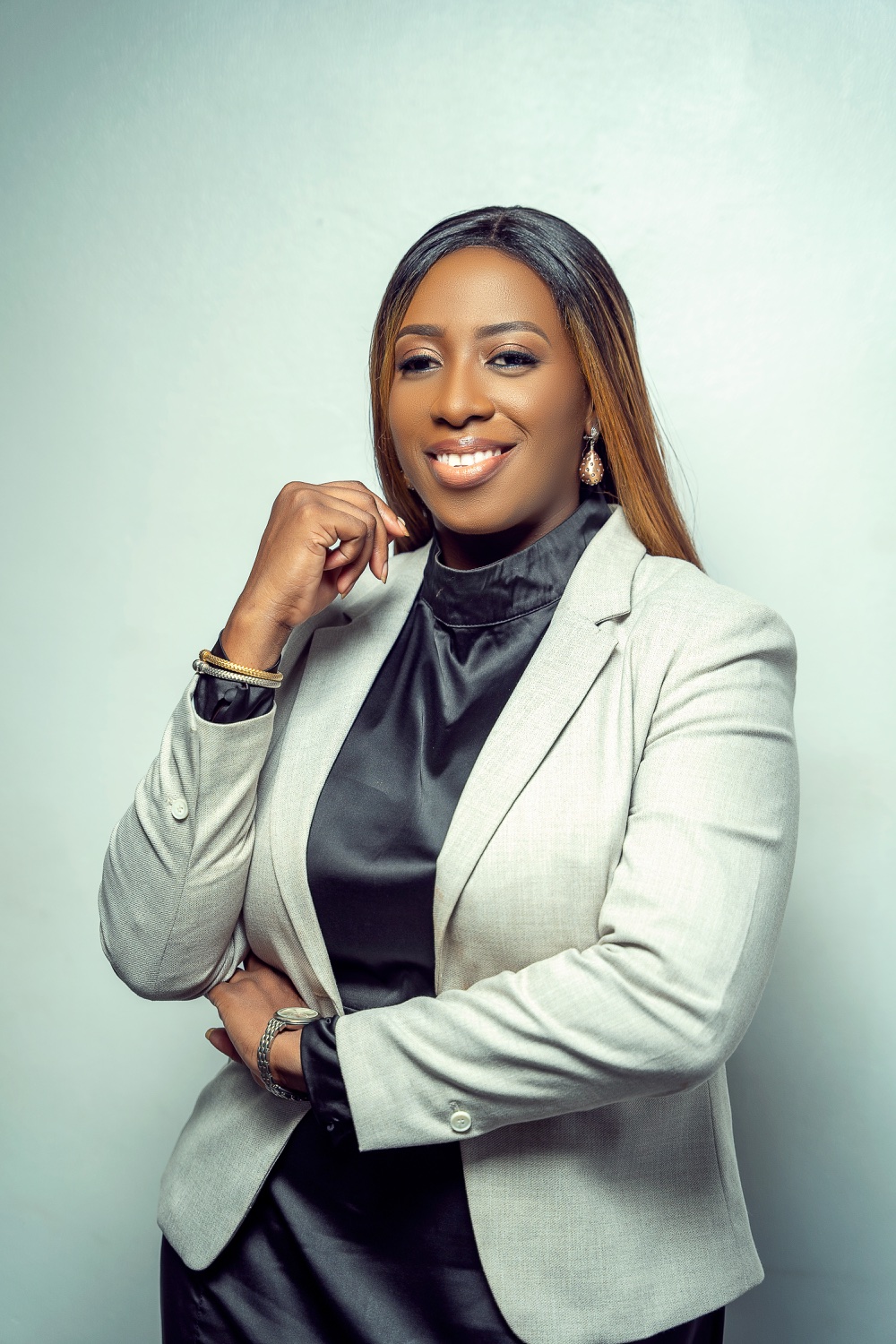
Dr Omolola Salako’s Tips for Cancer Prevention For Individuals
Some kinds of cancers are preventable, and that’s through a healthy approach to your daily habits. Omolola says:
- Eat a balanced diet. This simply means having various types of food types, in decent portions, you can call it small, you can call it medium, but not huge proportions.
- Drink water. What is happening is people are unaware that they are replacing water with other alternatives like fizzy drinks, teas, and soft drinks. You should consciously take
- Go for annual medical checkups. When you present yourself for this, you have an early insight into how your body is doing and you can be counselled, educated on how to prevent the things you are at risk for.
- Avoid tobacco products and reduce alcohol consumption. Tobacco products are known to contain substances that make them addictive, and also, they suppress the immune system.
- Practice safe sex. There are certain viruses that suppress the immune system and enable cancer to flourish. Also, a lot of viruses transmitted through sex are known to cause cancer.
Impact
Sebeccly is a community organisation that works at the grassroots and its vision is to reduce population barriers to accessing cancer care.
“We’ve screened more than 20,000 women for cervical and breast cancer. We launched several digital campaigns that have a reach of more than 10 million people in the past. In 2020, we organised 70,000 women to get screened. We moved into the communities to first of all, educate women about the benefits of cervical cancer prevention, and then encouraged them to move into any of the PHCs – 72 at the time – to get screened. Thousands of women join our monthly support group meeting, which has just moved from physical to virtual.”
**
IMPACTER by Global Citizen x BellaNaija is throwing the spotlight on Africans making an impact in their countries and beyond. From mitigating the effects of climate change, to providing mental care, building innovative solutions to COVID-19, fighting global poverty, and providing education for all, these impacters are building smart solutions to creating a world that is safe, healthy and equal for all.
As the world strives to recover from the impact of COVID-19, IMPACTER will follow the journey of these change-makers whose projects are not just changing the lives of people, but are also creating a world of equity and equality.


